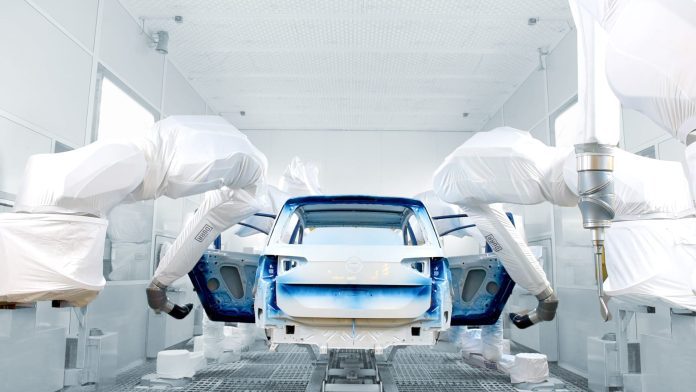Germany-based IT and IoT integration company Software AG is looking to replicate its ADAMOS alliance of machine manufacturers in other industrial domains. It wants to hone its digital-change technologies at the ‘coal-face’ of the markets they are designed for, in collaboration with the companies they are designed for.
Software AG will establish formal alliances and loose working groups variously in the utilities, industrial automation, and smart cities markets over the next six months, the company told Enterprise IoT Insights. “We think that’s the right way to get industry-specific capabilities and competencies into our technology,” said Bernd Gross, chief technology officer at Software AG.
The Darmstadt-based outfit has been buoyed by the success of its ADAMOS (ADAptive Manufacturing Open Solutions) collective, founded with Germany industrial engineering manufacturers Dürr, DMG MORI, and Zeiss to develop high-end machine and process analytics for industrial machines.
Dürr, which makes painting robots for the automotive industry, has reworked its DXQ equipment analytics programme with Software AG record, analyse, and eliminate faults in the painting process. The software has been rolled-out to around 10 car factories so far in Germany, owned by a tier-one automotive manufacturer. It will be deployed in all its sites, and picked up by its peers, said Software AG.
The ADAMOS alliance now has 15 members; all of them machine builders, bar Software AG. German firms Schlenker Spannwerkzeuge Inge (clamping tools), Josef Meißner (chemical plants), and Wittenstein (electromagnetic drive systems) are the most recent joiners, lining up alongside ASM, Engerl, Karl Mayer, Mahr, Weber, Oerlikon, Illig, Mayer & Cie, as well as the original quartet.
Software AG is also working with its various telco customers in an informal sharing community, to bring best practice and know-how to their IoT setups. Deutsche Telekom in Germany and Telstra in Australia have both stopped work with other IoT platform providers, including the large cloud providers, in recent months to continue exclusively with Software AG’s Cumulocity IoT platform, going from three-to-one and two-to-one respectively.
The company is working with “close to 20” mobile operators, taking the Cumulocity IoT platform as a white-label service. These include Deutsche Telekom in Germany, KPN in the Netherlands, A1 in Austria, Telstra in Australia, NTT in Japan, and Saudi Telecom in Saudi Arabia. It is still targeting a deal with AT&T in the US. It says it may look to organise its operator clients into a “loose club”, without the legal structure and governance that defines ADAMOS.
New alliances will likely be formed in the utilities space, first, specifically around water supply, after the success of its work with Telstra and Southeast Water in Australia to automate water management. Their solution collects sensor data in the Cumulocity IoT platform about water pressure and consumption from meters connected via Telstra’s NB-IoT network.
“Water is scarce; its management is increasingly important. We would like to expand the project in Australia into an international collaboration, similar to the ADAMOS work in Germany,” said Gross.
At the same time, he suggested the industrial automation market, running alongside the industrial IoT sector, comprising makers of automation equipment, could also be brought together in digital collaboration via an ADAMOS-style organisation. “ADAMOS appeals very nicely to machine makers. But there’s another segment of industrial IoT, which is the automation industry. We are looking at that, as well.”
Software AG is also looking to explode its solutions and learnings from Abu Dhabi – where Cumulocity IoT was used to underpin 10 civic-tech use cases during the pilot phase of a five-year digital transformation project – in the smart cities space. Applications ranged from environmental monitoring and asset tracking to weevil detection and swimming pool monitoring.
Gross commented: “It’s all universally applicable, to many parties and clients globally. And it would be interesting to create an industry initiative around it, like with ADAMOS.” A timeline is not confirmed, he said. “We would be lucky to finish any of these initiatives this year – we are talking the start of 2020, realistically, and probably the second quarter.”
He added: “That is our strategy. We are a technology enablement company. The domain specific know-how comes from partners. We have these technologies, these capabilities, and we want to make them relevant to customers through these partnerships. By creating these communities, we generate enormous value for partners.”

